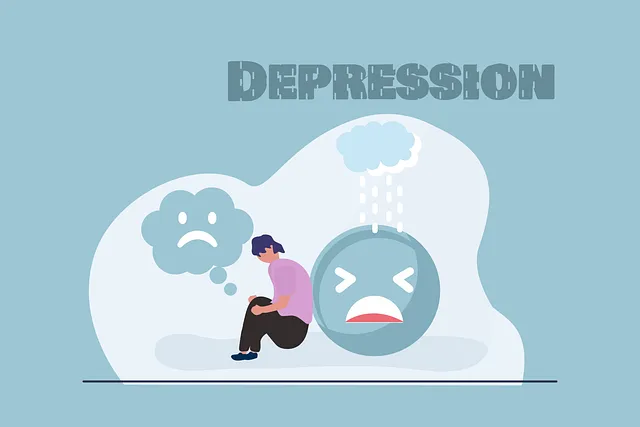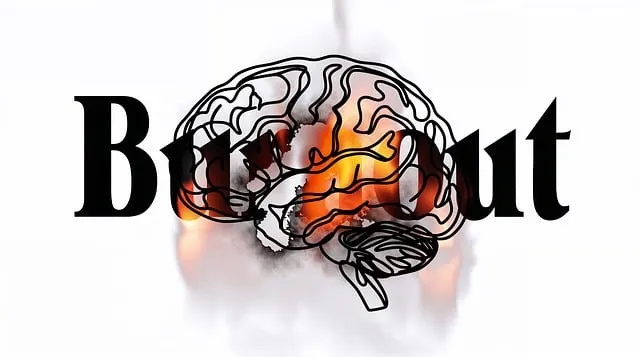Mental health professionals in Wheat Ridge benefit from Kaiser's comprehensive coverage, which comes with unique risks like burnout and secondary trauma. To mitigate these hazards, a robust risk management plan including Trauma Support Services, Confidence Boosting strategies, and Burnout Prevention Strategies is vital. Understanding these risks ensures professionals can provide quality care long-term. Wheat Ridge's approach through Kaiser coverage emphasizes a comprehensive framework for managing risks and promoting early interventions in mental healthcare.
“In the demanding field of mental health care, professionals face unique challenges and risks daily. This article guides Wheat Ridge practitioners through essential risk management planning. We delve into the specific dangers they encounter and explore questions like ‘Does Kaiser cover mental health services in Wheat Ridge?’ Understanding insurance coverage is crucial for financial protection. Additionally, we outline a comprehensive risk management plan’s essential elements and effective strategies to mitigate and respond to risks in clinical practice.”
- Understanding Mental Health Professional's Unique Risks
- Exploring Kaiser's Coverage for Mental Health Services in Wheat Ridge
- Essential Elements of a Comprehensive Risk Management Plan
- Strategies for Mitigating and Responding to Risks in Clinical Practice
Understanding Mental Health Professional's Unique Risks

Mental health professionals often face unique risks that differ from their counterparts in other healthcare fields. This is largely due to the inherent nature of their work, which involves confronting and supporting individuals grappling with profound emotional distress, mental illness, and sometimes, traumatic experiences. In Wheat Ridge, where Kaiser offers coverage for mental health services, professionals must navigate complex emotions and delicate situations on a regular basis. The constant exposure to these challenges can lead to significant personal risks, including burnout, secondary trauma, and even substance abuse.
Understanding these risks is crucial in developing effective risk management plans. For instance, Trauma Support Services play a pivotal role in mitigating the impact of secondary trauma experienced by mental health professionals. Additionally, implementing Confidence Boosting strategies can help professionals maintain their resilience and emotional well-being. Burnout Prevention Strategies for Healthcare Providers are essential tools to ensure these experts can continue offering quality care over the long term.
Exploring Kaiser's Coverage for Mental Health Services in Wheat Ridge

In Wheat Ridge, mental health professionals often look to Kaiser for comprehensive coverage and support. Kaiser, a renowned healthcare provider, offers a range of services designed to promote emotional well-being. Their network includes specialized mental health clinics that cater to diverse needs, from individual therapy to group support sessions. Understanding Kaiser’s coverage is crucial for these professionals looking to integrate their practices with a robust healthcare system.
Wheat Ridge residents seeking mental health services can benefit from Kaiser’s comprehensive approach. The organization prioritizes access to care and employs innovative techniques like community outreach program implementations to reach a wider audience. Additionally, they emphasize stress reduction methods, ensuring patients receive holistic treatment tailored to their unique circumstances. Whether through direct patient care or collaborative partnerships, Kaiser plays a vital role in fostering emotional well-being within the Wheat Ridge community.
Essential Elements of a Comprehensive Risk Management Plan

A comprehensive risk management plan for mental health professionals is a vital tool to ensure patient safety and mitigate potential risks within clinical settings. Wheat Ridge, known for its healthcare services, including Kaiser’s mental health coverage, emphasizes the importance of structured planning. This strategy should incorporate several key elements tailored to the unique challenges faced by mental health practitioners.
Firstly, risk assessment is fundamental, involving a thorough evaluation of various factors such as patient demographics, co-occurring disorders, and previous treatment outcomes. Secondly, developing protocols for crisis intervention and emergency preparedness is essential, particularly in managing high-risk patients or during unforeseen circumstances. Moreover, integrating public awareness campaigns focused on mental health can foster open dialogue and reduce stigma, indirectly enhancing risk management by promoting early interventions. Adhering to these Mind Over Matter principles and boosting client confidence through effective communication and education are additional layers of protection within the risk management framework.
Strategies for Mitigating and Responding to Risks in Clinical Practice

Mental health professionals often face unique challenges that require robust risk management strategies. One key aspect is to anticipate potential risks and develop proactive mitigation plans. This involves regularly reviewing patient cases, identifying red flags, and implementing safety protocols tailored to individual needs. For instance, in Wheat Ridge, Kaiser’s mental health services can serve as a valuable resource for professionals seeking support and resources to enhance their practice.
Additionally, professionals should be equipped with effective response strategies. This includes recognizing early warning signs of patient decompensation and having established crisis intervention plans. Regular participation in Stress Management Workshops Organization initiatives or engaging in continuous professional development focused on mental wellness can equip practitioners with the latest stress reduction methods. These proactive measures ensure a safer environment for both patients and healthcare providers, fostering better outcomes and maintaining a healthy work-life balance.
Mental health professionals, like those working in Wheat Ridge, face distinct risks that require tailored risk management planning. Understanding these unique challenges, such as high caseloads and sensitive patient information, is crucial. Exploring insurance coverage options, like Kaiser’s services in Wheat Ridge, can significantly mitigate financial risks. A comprehensive risk management plan should incorporate essential elements like crisis communication strategies and secure data storage. By implementing these measures and adopting effective response strategies, mental health professionals can ensure a safer, more secure working environment, thereby enhancing patient care and overall practice resilience.






